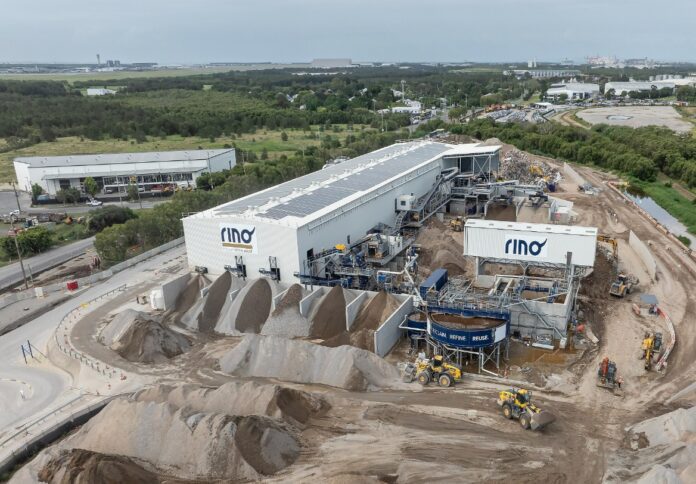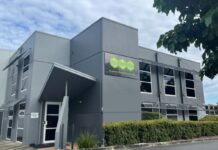
Rino Recycling’s new construction and demolition (C&D) waste recycling plant in Brisbane is improving waste recovery rates and reducing landfill waste in South East Queensland, one of Australia’s fastest-growing regions.
With a maximum processing capacity of 475 tonnes per hour, the facility can handle up to 1.5 million tonnes of C&D waste annually, Rino said in a news release.
It is expected to reach full capacity by the end of 2025, driving a significant shift toward a circular economy in the region.
“South East Queensland is in the early stages of a very significant investment period,” stated Daniel Webber, CDE Australasia’s General Manager.
“Over the next two decades, we’re going to see a real uptick in construction to support the development of major infrastructure and large-scale capital projects. The SEQ City Deal is creating a more connected, prosperous and sustainable South East Queensland region and this plant will be one of the primary supply lines to help deliver on those aims in an economic and environmentally sustainable way.”
The SEQ City Deal, a collaboration between federal, state, and local governments, aims to bolster infrastructure to support a projected 40 per cent population increase by 2041.
Rino Recycling’s General Manager, Daniel Blaser, emphasised the facility’s role as a model for sustainable construction: “We truly believe this plant to be one of SEQ’s crown jewels for sustainable construction. It’s a beacon of sustainability, not only for this region but for any fast-developing region that recognises economic growth doesn’t have to come at the cost of the environment.”
The advanced facility can process up to 475 tonnes of C&D waste per hour, equating to 1.5 million tonnes annually.
Although currently operating at half-capacity, Rino anticipates reaching full operational capacity by late 2025.
“We’re making a very strong case in favour of recycled sand and aggregate. More and more are adapting and as that increases so too will our capacity to meet that growing demand,” Blaser added.
The plant’s design also reduces carbon emissions by providing a local recycling option, minimising the need for long-distance waste transport.
“This solution and its proximity to Brisbane’s Central Business District – the beating heart of many major infrastructure projects – will help reduce the sector’s carbon footprint by tackling the waste burden, repurposing materials, and limiting the need to extract new raw materials,” Webber noted.
In addition, CDE’s water management technology allows the facility to recycle up to 95 per cent of its water through a closed-circuit system, making the plant water-neutral.
This self-sufficiency not only conserves resources but also enhances the facility’s efficiency and economic viability, said Webber.
Operating closely with CDE’s new Australian headquarters in Stapylton, Rino Recycling is well-positioned to benefit from streamlined support and rapid access to spare parts, further reducing operating costs and enhancing productivity.
For more information, visit CDEGroup.com.



















